In the realm of politics, individuals with influence and command are often perceived as symbols of victory and knowledge. Unfortunately, numerous political figures, despite their lofty intellect, have failed to demonstrate the prudence needed to evade grave political errors. Their actions, which encompass corrupt practices, infidelity, questionable policies, and covert firearm transactions, have nevertheless become trendy – albeit disputed – subjects of conversation at social gatherings.
Our tendency to delve into controversial issues has led us on a deep exploration of historical investigation, prompting us to question the actual intelligence of our leaders. Instead of immersing ourselves in the ongoing cacophony surrounding the White House, we’ve decided to shift our focus toward a fascinating analysis of the IQs of U.S. presidents. If you’re under the impression that it requires a mind like Albert Einstein’s to govern one of the world’s most influential nations, you might want to reassess that. President Trump may have varied opinions associated with him, but he certainly doesn’t qualify as a genius of Einstein’s stature. The intriguing question here is – how does Trump’s IQ stand up to past leaders? Keep reading to discover.
Bill Clinton
 It appears that men possessing a high intelligence quotient are inclined towards being unfaithful, a trait exhibited by Bill Clinton in one of the most significant controversies in the history of the White House.
It appears that men possessing a high intelligence quotient are inclined towards being unfaithful, a trait exhibited by Bill Clinton in one of the most significant controversies in the history of the White House.
In spite of possessing an impressive IQ of 159, he was unable to shield himself from the uproar of the media and the masses. He famously refuted his clandestine relationship with Monica Lewinsky by declaring, “I did not have sexual relations with that woman.” Nevertheless, even Clinton’s exceptionally high IQ couldn’t assist him in fabricating a convincing lie. Besides being guilty of infidelity, he misplaced the nuclear launch codes for several months. This leaves us speechless.
Warren G. Harding
 Warren Harding reigned as one of the most highly esteemed U.S presidents ever but his stature crumbled owing to his association with ‘The Teapot Dome’ scandal. This contentious event happened when private oil companies were favorably allowed to mine oil and gas in Wyoming, resulting in a great influx of wealth into the White House, a perceived benefit that Harding apparently relished. It goes without saying that this controversy was a consuming fire that tarnished his hitherto shining reputation.
Warren Harding reigned as one of the most highly esteemed U.S presidents ever but his stature crumbled owing to his association with ‘The Teapot Dome’ scandal. This contentious event happened when private oil companies were favorably allowed to mine oil and gas in Wyoming, resulting in a great influx of wealth into the White House, a perceived benefit that Harding apparently relished. It goes without saying that this controversy was a consuming fire that tarnished his hitherto shining reputation.
What transpired with his impressive IQ score of 139.9? Harding foresaw an America where the economy reigned supreme and wealthy individuals became wealthier. He fortified the economy and reduced public liabilities, nevertheless, he gained notoriety due to scandal and dubious occurrences within his presidential office.
John F. Kennedy

JFK, renowned as one of the most intelligent US presidents, left a profound legacy, highlighted by his exceptional intelligence quotient of 159.8. Besides delivering one of the most momentous speeches in history, he was also reputed for his charm with the ladies.
His well-known romantic interests encompassed Marilyn Monroe and Jackie O. When questioned about his position as president, JFK humorously commented, “the salary is generous, and my commute is a walk.” The man’s legacy is largely defined by his insightful philosophical sayings and eloquent speeches.
Ulysses S. Grant
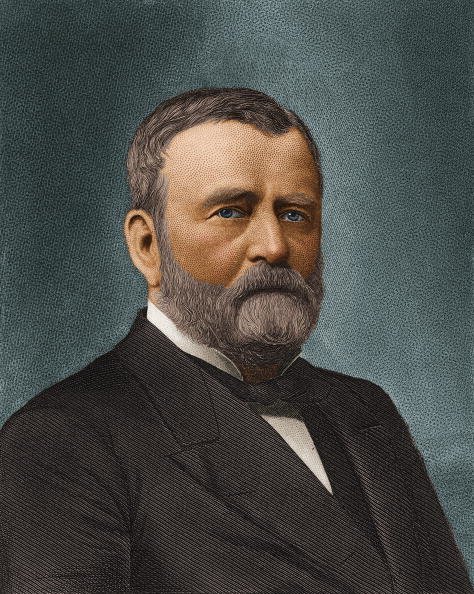 Take into consideration that an average Intelligence Quotient (IQ) is typically between 85 and 115 before we pass judgement. Grant’s IQ score of 130 is quite commendable in that context. Nonetheless, this apparently didn’t aid him in detecting the Whiskey Ring scandal, hidden tax income, and other disputes that occurred during his tenure.
Take into consideration that an average Intelligence Quotient (IQ) is typically between 85 and 115 before we pass judgement. Grant’s IQ score of 130 is quite commendable in that context. Nonetheless, this apparently didn’t aid him in detecting the Whiskey Ring scandal, hidden tax income, and other disputes that occurred during his tenure.
Don’t lose sight of the fact that he ascended to the role of the 18th President of the United States of America, and helmed the Union army amid the tumult of the American Civil War. Even though his IQ score was higher-than-average, his ability to assess character fell short.
James Monroe
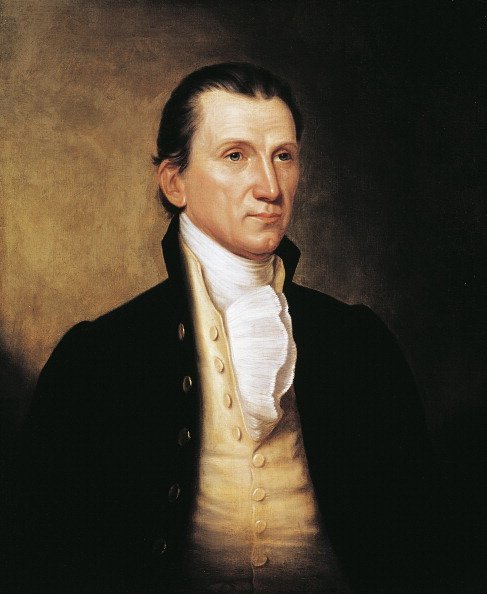 James Monroe, a key figure in the founding of America, served as its leader during a period when internal matters were of significant concern. Although his IQ score of 138.6 was not astronomically high, political expert Fred Greenstein argued that Monroe’s leadership skills outshined those of seemingly smarter forerunners, such as John Adams.
James Monroe, a key figure in the founding of America, served as its leader during a period when internal matters were of significant concern. Although his IQ score of 138.6 was not astronomically high, political expert Fred Greenstein argued that Monroe’s leadership skills outshined those of seemingly smarter forerunners, such as John Adams.
The administration led by Monroe dealt with numerous challenges, aiding in the Missouri Compromise and reinforcing the nation’s strength. In 1820, Monroe triumphed massively over Rufus King of New York, garnering 183 votes to King’s 34. Undoubtedly, he was a leader who genuinely instigated beneficial transformations for the well-being of his citizens.
George W. Bush
 Regrettably, Bush built up a reputation as one of the less intellectually gifted presidents of America, despite his IQ score of 138.5, which he didn’t fully realize.
Regrettably, Bush built up a reputation as one of the less intellectually gifted presidents of America, despite his IQ score of 138.5, which he didn’t fully realize.
Even though he’s known to have a way with words, his public speaking abilities were far from impressive and many of his remarks were rather unclear. Having graduated from high school without remarkable grades, he still excelled in making social connections. Interestingly, he had a phase where he was the chief cheerleader. Isn’t it funny to picture George W. Bush wielding pom-poms?
Andrew Johnson
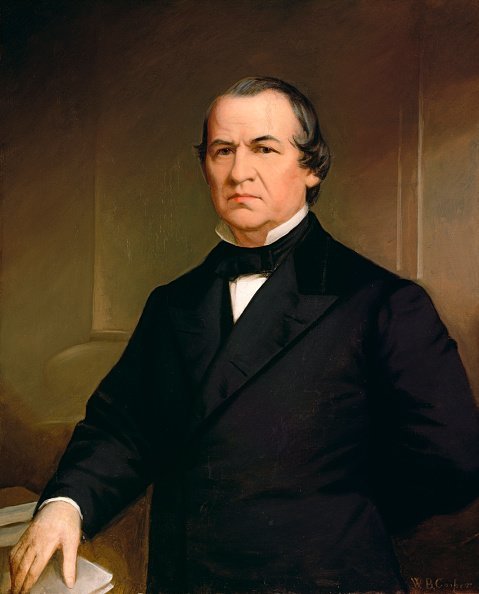 Abraham Lincoln’s successor assisted the Union, but didn’t actively support granting voting rights to emancipated slaves. Johnson earned the dubious distinction of being the first impeached president after he approved “black codes” that subjugated newly liberated slaves. He strongly opposed laws devised to safeguard these individuals. That’s quite disappointing.
Abraham Lincoln’s successor assisted the Union, but didn’t actively support granting voting rights to emancipated slaves. Johnson earned the dubious distinction of being the first impeached president after he approved “black codes” that subjugated newly liberated slaves. He strongly opposed laws devised to safeguard these individuals. That’s quite disappointing.
Despite having a fairly impressive IQ of 138.9, Johnson’s mindset was profoundly regressive and racially prejudiced, which was disheartening. Efforts from the White House to unseat him through impeachment were unsuccessful, leading to his continuation in office. His presidential tenure from 1865 to 1869 created a sense of disappointment and disenchantment among the populace.
Zachary Taylor
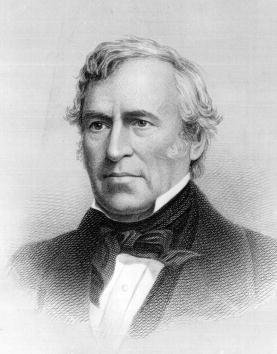 Cherries are abundant in Vitamin C, however, excessive consumption can be hazardous. This was the case for Zachary Taylor, whose presidential term was abruptly ended when he overindulged on these small red fruits during a 4th of July festivity in 1850.
Cherries are abundant in Vitamin C, however, excessive consumption can be hazardous. This was the case for Zachary Taylor, whose presidential term was abruptly ended when he overindulged on these small red fruits during a 4th of July festivity in 1850.
Taylor’s excessive indulgence indeed proved to be his downfall, leading to his demise just a year and a half into his presidency. His brave exploits during the Mexican-American War are notable in his legacy, yet his substantial IQ of 139.8 and his valorous deeds were insufficient to protect him from the harmful effects of over-consumption of cherries.
James Buchanan
 Despite James Buchanan purportedly having an IQ of 139.6, this intelligence did not prove beneficial throughout his term as president. His lacking foresight and comprehension were detrimental to resolving the slavery dispute. Although his support of Dred Scott won him favor among the Southerners, it resulted in considerable anger among the Northerners, creating a domino effect that eventually split his own party.
Despite James Buchanan purportedly having an IQ of 139.6, this intelligence did not prove beneficial throughout his term as president. His lacking foresight and comprehension were detrimental to resolving the slavery dispute. Although his support of Dred Scott won him favor among the Southerners, it resulted in considerable anger among the Northerners, creating a domino effect that eventually split his own party.
The individual renowned for guiding the United States through the Civil War was the country’s 15th President. However, Buchanan couldn’t find success in his romantic life. He remains the only President to have never married, leading the nation as its most powerful leader while being a lifelong bachelor.
Andrew Jackson
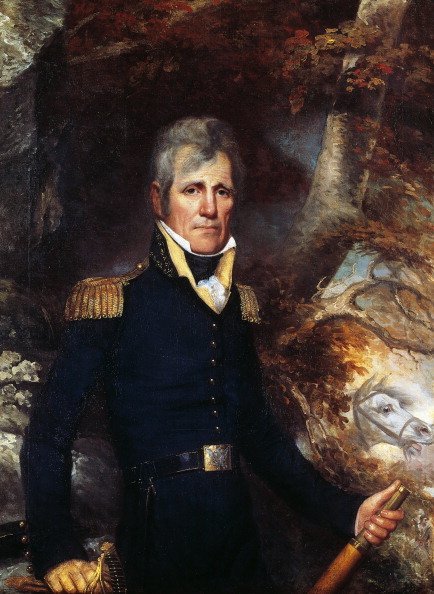 With an intelligence quotient of 145, Andrew Jackson was a firm believer in the capability of the “average person” to make good decisions. His life seemed to be a testament to the age-old adage “what doesn’t kill you makes you stronger”, having survived a gunshot wound to the chest in a duel. This man of high intellect didn’t let his IQ go to waste; instead, he used it to teach his parrot, Polly, a few choice words. He was so successful in this training that Polly had to be escorted out of Jackson’s funeral due to her inappropriate language.
With an intelligence quotient of 145, Andrew Jackson was a firm believer in the capability of the “average person” to make good decisions. His life seemed to be a testament to the age-old adage “what doesn’t kill you makes you stronger”, having survived a gunshot wound to the chest in a duel. This man of high intellect didn’t let his IQ go to waste; instead, he used it to teach his parrot, Polly, a few choice words. He was so successful in this training that Polly had to be escorted out of Jackson’s funeral due to her inappropriate language.
William Howard Taft
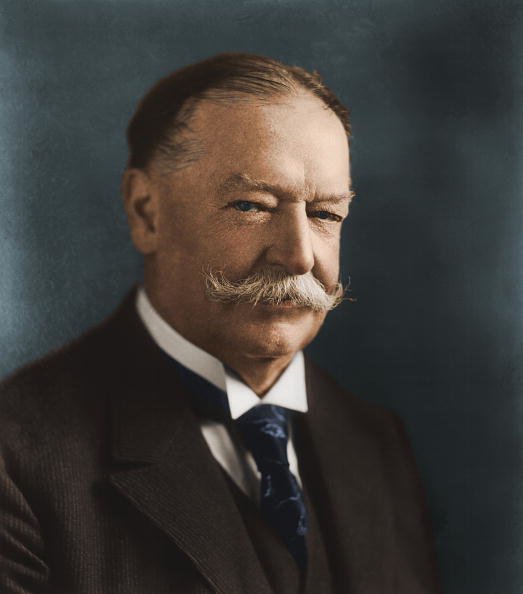 Get acquainted with William Howard Taft, the 27th President of the United States, who boasted an impressive IQ of 139.5. In addition to his presidential term, he also served as the Chief Justice, making him the solitary individual to have occupied both positions.
Get acquainted with William Howard Taft, the 27th President of the United States, who boasted an impressive IQ of 139.5. In addition to his presidential term, he also served as the Chief Justice, making him the solitary individual to have occupied both positions.
This impressive individual not only demonstrated his intellectual prowess in the realm of politics, but also exerted his innovative spirit by crafting a bespoke bathtub spacious enough for four average-sized individuals. However, Taft didn’t display much enthusiasm about his duties as president. As he put it, “I don’t recall ever being President.”
Gerald Ford
 Ford, who served as the 38th US president, possessed an Intelligence Quotient of 140.4. When Nixon resigned in the aftermath of the Watergate scandal, Ford ascended to the presidency, becoming the first president in American history to hold the position without being elected. Although his tenure is often overlooked, Ford made considerable efforts to restore American citizens’ trust following the Watergate incident.
Ford, who served as the 38th US president, possessed an Intelligence Quotient of 140.4. When Nixon resigned in the aftermath of the Watergate scandal, Ford ascended to the presidency, becoming the first president in American history to hold the position without being elected. Although his tenure is often overlooked, Ford made considerable efforts to restore American citizens’ trust following the Watergate incident.
In addition to his commendable intelligence, Ford was one of the most recognized sportsmen to hold office in the Oval. His years of engaging in football and skiing activities retained his vigor and agility.
Calvin Coolidge
 The 30th American President, Calvin Coolidge, boasted an impressive IQ of 141.6. Although known for his reticence, Coolidge’s contributions to the United States were notable. Following the tumultuous Harding presidency, he stepped in as the representative and advocate for the middle class and managed to regain public trust in the government. As a president, Coolidge made significant strides in resolving many burning issues of his time, which culminated in high approval ratings at the completion of his term.
The 30th American President, Calvin Coolidge, boasted an impressive IQ of 141.6. Although known for his reticence, Coolidge’s contributions to the United States were notable. Following the tumultuous Harding presidency, he stepped in as the representative and advocate for the middle class and managed to regain public trust in the government. As a president, Coolidge made significant strides in resolving many burning issues of his time, which culminated in high approval ratings at the completion of his term.
Known as “Silent Cal” due to his reserved nature, a popular anecdote involves a woman who, during a dinner party, shared with Calvin Coolidge that she had wagered that day she could coax him into saying more than two words. Without missing a beat, Coolidge simply answered, “You lose.” His response was quite slick.
Harry S. Truman
 Harry S.Truman, known for his tenaciousness, served as president amidst two major crises – World War II and the onset of the Cold War. Rather unexpectedly, he transitioned from acting as the Vice President of the United States to stepping into the main role upon Roosevelt’s death, a position he held for mere weeks. Truman once disclosed to journalists that he felt as if “the moon, the stars, and all the planets had descended upon him.”
Harry S.Truman, known for his tenaciousness, served as president amidst two major crises – World War II and the onset of the Cold War. Rather unexpectedly, he transitioned from acting as the Vice President of the United States to stepping into the main role upon Roosevelt’s death, a position he held for mere weeks. Truman once disclosed to journalists that he felt as if “the moon, the stars, and all the planets had descended upon him.”
Throughout his tenure, Truman utilized his substantial intelligence quotient of 139.8 to handle the complexities of the A-bomb development and the rising issues with the Soviets. His decision to sanction the release of atomic bombs on Hiroshima and Nagasaki marked a seminal incident in American history.
Lyndon B. Johnson
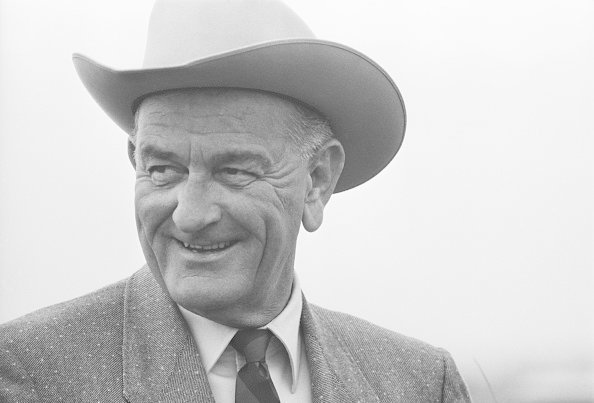 Lyndon B. Johnson, who took over after JFK, undoubtedly had a big responsibility. While he may not have met the expectations of many, it cannot be denied that his tenure as president left a significant and contentious imprint on the history of America’s presidency.
Lyndon B. Johnson, who took over after JFK, undoubtedly had a big responsibility. While he may not have met the expectations of many, it cannot be denied that his tenure as president left a significant and contentious imprint on the history of America’s presidency.
Inarguably, his impressive IQ of 140.6 played a significant role in his resolution to ramp up America’s army engagement in Vietnam. Maybe, he should have sought advice from Woodrow Wilson before finalizing that plan. On a more humorous note, Johnson was famous for his unashamedly ‘restroom interviews’, defiantly not permitting reporters to interfere with his personal time. Notably, he also famously relieved himself in the White House parking lot.
Herbert Hoover
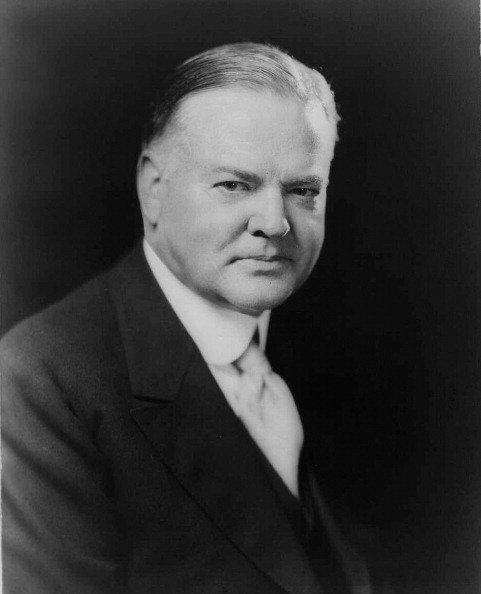 Herbert Hoover served his term amid the devastating 1929 stock-market collapse. Despite his impressive IQ of 141.6, governing the nation during such hardship was not easy. By the decade’s conclusion, he was deeply unpopular as countless Americans were jobless and homeless.
Herbert Hoover served his term amid the devastating 1929 stock-market collapse. Despite his impressive IQ of 141.6, governing the nation during such hardship was not easy. By the decade’s conclusion, he was deeply unpopular as countless Americans were jobless and homeless.
America was in dire need of a leader who could pull them from the clutches of Depression, but they found themselves with a man devoid of value. Hoover was accountable for refusing assistance to struggling Americans, all under the guise of capitalism. For numerous Americans, Hoover’s term in office was a bleak period marked by disillusionment and adversity.
Ronald Reagan
 Ronald Reagan, who held the title of the 40th American President, was in office for two periods. Prior to his prestigious post, he was involved in acting, boasting an IQ of 141.9, considered average for someone in his presidential position. Known for his well-remembered phrase “peace through strength,” he promised the public to bring back the robust echo of American progress and growth, raising anticipation among them.
Ronald Reagan, who held the title of the 40th American President, was in office for two periods. Prior to his prestigious post, he was involved in acting, boasting an IQ of 141.9, considered average for someone in his presidential position. Known for his well-remembered phrase “peace through strength,” he promised the public to bring back the robust echo of American progress and growth, raising anticipation among them.
Nonetheless, the notorious Iran Arms Scandal during the 80s tainted his reputation. Although he initially rejected any suggestions of a deal, he eventually confessed that he indeed traded missiles with Iran to liberate American hostages. It’s difficult to understand how he could disregard the well-being of innocent civilians by transferring weapons to a group involved in terrorism.
George H.W. Bush
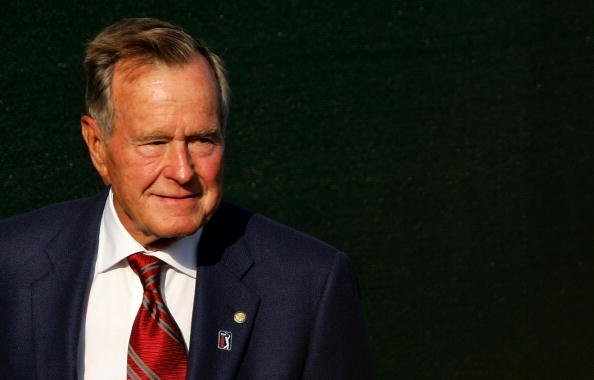 If it’s true that the apple doesn’t fall far from the tree, how would George H.W. Bush interpret his son’s leadership style? Although the senior Bush may not have been the most brilliant individual in the White House, his track record was certainly impressive.
If it’s true that the apple doesn’t fall far from the tree, how would George H.W. Bush interpret his son’s leadership style? Although the senior Bush may not have been the most brilliant individual in the White House, his track record was certainly impressive.
Boasting an impressive IQ of 143, his leadership aimed to cultivate a more compassionate and mild-mannered United States. Bush also displayed his strength by surmounting a host of obstacles, primary of which were Saddam Hussein’s attack on Kuwait and unrest in Cuba. However, despite his tactics, they didn’t prove sufficient to prevent his departure from the White House.
William McKinley
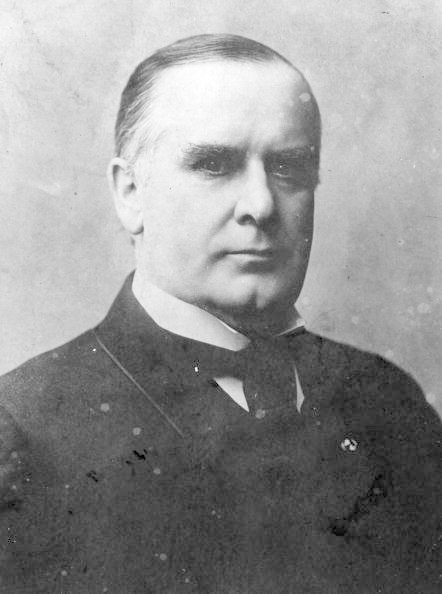 The 25th President of the United States, William McKinley, holds a place on our list due to his commendable IQ of 143.4, earning him our admiration.
The 25th President of the United States, William McKinley, holds a place on our list due to his commendable IQ of 143.4, earning him our admiration.
McKinley’s presidency, which was marked by his staunch backing of the gold standard, reinvigorated the US economy. The depression from the 1890s ended and industrial growth accelerated during his term. Tragically, he became the third U.S. president to be assassinated, an event that prompted Congress to pass a law delegating the task of safeguarding the president to the Secret Service.
James K. Polk
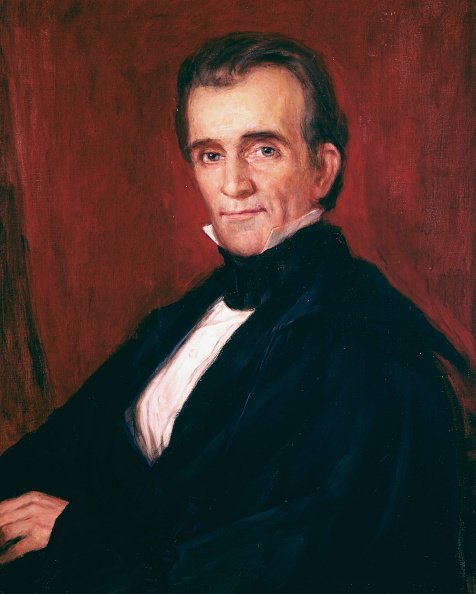 James K. Polk equaled McKinley’s IQ rating of 143.4. Polk is seen as one of the most effective presidents from the period before the Civil War. Even though he was characterized as the “dark horse” contender during his presidential campaign, Polk turned out to be a great selection, effecting genuine transformations in America through his work in resolving territorial controversies, modifying fiscal policy, and improving banking.
James K. Polk equaled McKinley’s IQ rating of 143.4. Polk is seen as one of the most effective presidents from the period before the Civil War. Even though he was characterized as the “dark horse” contender during his presidential campaign, Polk turned out to be a great selection, effecting genuine transformations in America through his work in resolving territorial controversies, modifying fiscal policy, and improving banking.
He increased America’s territorial limits, maintained peaceful relations with the UK, and prevailed in the Mexican-American War. True to his campaign commitment, Polk served just a single term as president, his health deteriorating due to the pressures of leading the nation. Certainly, having high intelligence doesn’t necessarily equate to being highly resilient to intense stress and pressure.
Grover Cleveland
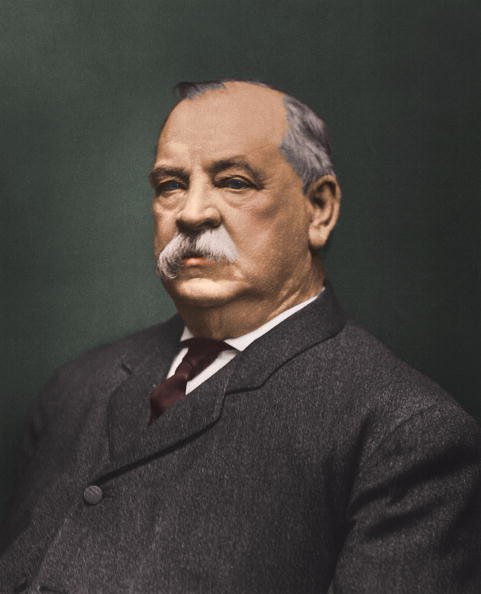 Grover Cleveland was certainly one of the most fascinating figures to reside in the White House. Despite having an outstanding IQ of 144, the fact that he was elected two times is quite exceptional. However, his tenure was not void of controversies.
Grover Cleveland was certainly one of the most fascinating figures to reside in the White House. Despite having an outstanding IQ of 144, the fact that he was elected two times is quite exceptional. However, his tenure was not void of controversies.
Is there anyone who can clarify the connection between IQ and controversy? Would you ever consider your daughter as your bride? If your response was an immediate “of course not,” you’re not alone. Despite this, Cleveland didn’t view it as a major issue. He tied the knot with his 21-year-old daughter, who he had adopted at the age of 11. As a result, she became the youngest first lady ever.
Richard Nixon
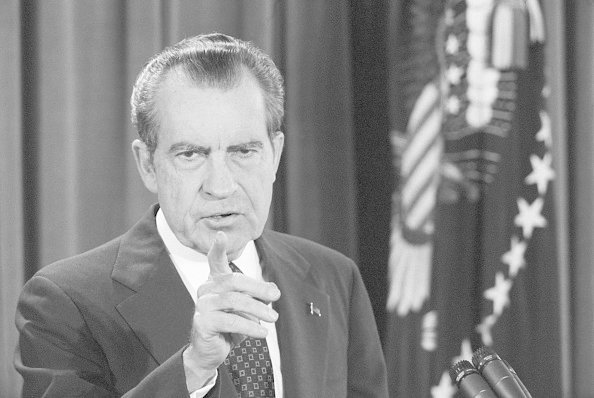 Richard Nixon, regarded as one of America’s most contentious presidents, had a relatively high IQ of 142.9. However, he exemplified that intelligence doesn’t always equate to effectiveness in the presidential office. Nixon had plotted to murder a reporter who was set to disclose his participation in the notorious Watergate scandal by subjecting him to excessive amounts of LSD. Upon probing into the Watergate scandal, it was unveiled that there was indeed a link between the burglars and Nixon.
Richard Nixon, regarded as one of America’s most contentious presidents, had a relatively high IQ of 142.9. However, he exemplified that intelligence doesn’t always equate to effectiveness in the presidential office. Nixon had plotted to murder a reporter who was set to disclose his participation in the notorious Watergate scandal by subjecting him to excessive amounts of LSD. Upon probing into the Watergate scandal, it was unveiled that there was indeed a link between the burglars and Nixon.
As a result, charges were levied on 69 government officers and numerous individuals from Nixon’s inner circle faced their downfall. As for Nixon, he took the necessary step to prevent impeachment, which led to his resignation from the presidency in 1974.
Dwight Eisenhower
 Dwight Eisenhower, the 34th President of the United States, still stands among the country’s most admired leaders. His IQ of 145.1 and accomplishments, including the inception of NASA and interstate highways, undoubtedly demonstrate his incredible intelligence. Besides his political contributions, Eisenhower had a love for golf and art, as evidenced by the more than 250 pieces of artwork he produced in his lifetime.
Dwight Eisenhower, the 34th President of the United States, still stands among the country’s most admired leaders. His IQ of 145.1 and accomplishments, including the inception of NASA and interstate highways, undoubtedly demonstrate his incredible intelligence. Besides his political contributions, Eisenhower had a love for golf and art, as evidenced by the more than 250 pieces of artwork he produced in his lifetime.
His sole issue within the White House premises revolved around the resident squirrels. Their presence annoyed him to the point where he demanded their extermination. Nevertheless, the Secret Service conspired secretly with the caretakers of the lawn to capture and subsequently free these squirrels into Rock Creek Park.
Benjamin Harrison
 Benjamin Harrison, often called “Little Ben” because of his small height, served as the 23rd president of the United States. Despite his size, he played a crucial role in forming the USA’s foreign policy. Interestingly, this smart man had an unusual fear: he was quite apprehensive about electricity.
Benjamin Harrison, often called “Little Ben” because of his small height, served as the 23rd president of the United States. Despite his size, he played a crucial role in forming the USA’s foreign policy. Interestingly, this smart man had an unusual fear: he was quite apprehensive about electricity.
Though Harrison was fearful, his presidency initiated progress in electrical conduction. He was the one who suggested the implementation of electric lighting in the White House. However, due to his fear of electric surges, he ironically never turned the lights on himself.
George Washington
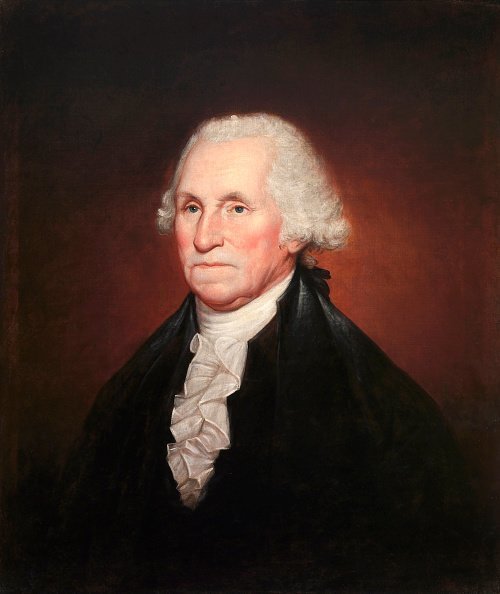 Introducing Sir George Washington, the inaugural President of the United States, who held an impressive IQ of 140. Among his notable achievements are his military victories and his exceptional talent for captivating the room with his dance skills.
Introducing Sir George Washington, the inaugural President of the United States, who held an impressive IQ of 140. Among his notable achievements are his military victories and his exceptional talent for captivating the room with his dance skills.
Washington wasn’t just a political leader, he also oversaw one of the largest distilleries in America back then. Upon concluding his presidency, he found life at his Mount Vernon estate rather dull and so, he ventured into the liquor industry. Remarkably, he produced a whopping 11,000 gallons of raw whiskey. It’s surprising to discover his remarkable talent in alcohol production!
Martin Van Buren
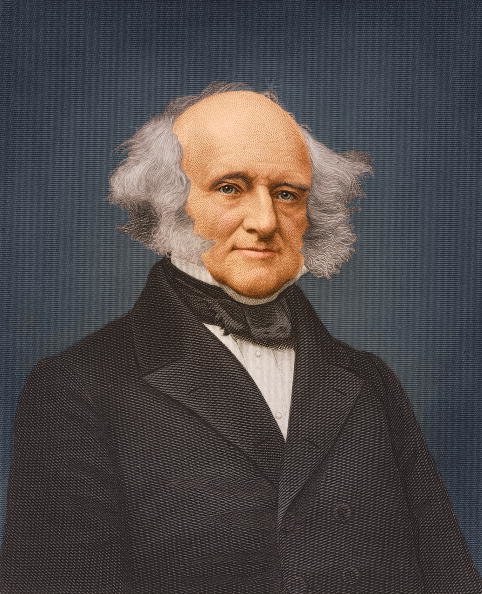 Van Buren held the title of the 8th US President. He is noteworthy for establishing the Democratic Party. Despite boasting an impressive IQ of 146, his presidency did not yield significant accomplishments or exemplary leadership. Dubbed “Martin Van Ruin”, it’s quite evident what that implies about his term. His successor, William Henry Harrison, also failed to have a successful tenure. While both Van Buren and Harrison might have been intellectually superior, their presidencies were generally viewed as letdowns, leaving much of the nation and its citizens disillusioned.
Van Buren held the title of the 8th US President. He is noteworthy for establishing the Democratic Party. Despite boasting an impressive IQ of 146, his presidency did not yield significant accomplishments or exemplary leadership. Dubbed “Martin Van Ruin”, it’s quite evident what that implies about his term. His successor, William Henry Harrison, also failed to have a successful tenure. While both Van Buren and Harrison might have been intellectually superior, their presidencies were generally viewed as letdowns, leaving much of the nation and its citizens disillusioned.
Rutherford B. Hayes
 A different potential “underdog” candidate to consider is Rutherford B. Hayes, who is distinguished more by his rise to power than his tenure. One may wonder why he didn’t utilize his impressive IQ of 146.3 more effectively during his term. In 1876, Hayes rose to prominence as a hero from the Civil War. Despite losing the electoral vote to Democrat Samuel Tilden, a loophole in the Constitution allowed Hayes to usurp the presidency. Although he is not frequently referenced in the United States, he is venerated as a national hero in Paraguay.
A different potential “underdog” candidate to consider is Rutherford B. Hayes, who is distinguished more by his rise to power than his tenure. One may wonder why he didn’t utilize his impressive IQ of 146.3 more effectively during his term. In 1876, Hayes rose to prominence as a hero from the Civil War. Despite losing the electoral vote to Democrat Samuel Tilden, a loophole in the Constitution allowed Hayes to usurp the presidency. Although he is not frequently referenced in the United States, he is venerated as a national hero in Paraguay.
The Paraguayans are greatly indebted to him due to his sideline agreement concerning a boundary controversy between Paraguay and Argentina. His mediation led to the recovery of 60 percent of their territory.
William Henry Harrison
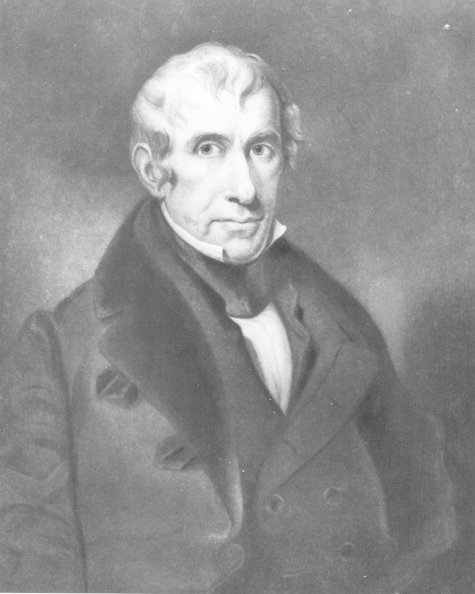 At 67 years, William Henry Harrison held the distinction of being the oldest person to be elected as a president at that specific time in history, and he was the first American president who died during his term. Unfortunately, his death tends to overshadow his accomplishments. He was only able to serve for 31 days due to a fatal pneumonia.
At 67 years, William Henry Harrison held the distinction of being the oldest person to be elected as a president at that specific time in history, and he was the first American president who died during his term. Unfortunately, his death tends to overshadow his accomplishments. He was only able to serve for 31 days due to a fatal pneumonia.
Surprisingly, the president who spent the briefest time in the White House gave the longest inaugural address. Indeed, in March 1841, Harrison made a speech that lasted an hour and 45 minutes during a chilly morning. As it turns out, the cold he contracted that day is believed to have escalated to the severe case of pneumonia that later caused his demise.
Franklin Pierce
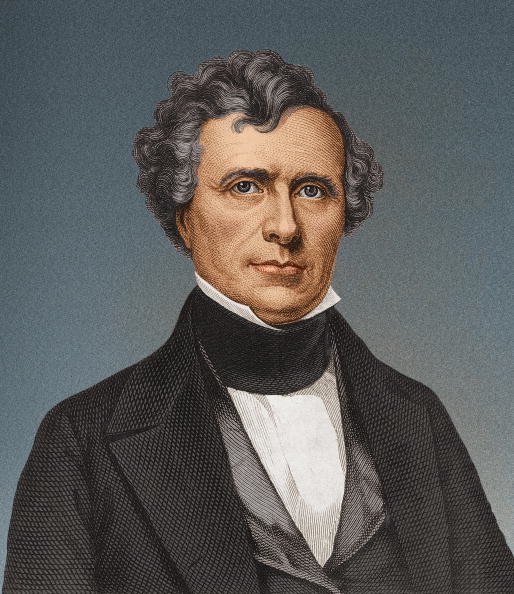 Despite having an impressively high IQ of 147.4, Franklin Pierce did not excel as a president. His reputation suffered due to his endorsement of the Kansas-Nebraska Act which incited the beginning of the Civil War. He’s often been characterized as a politician with only modest abilities.
Despite having an impressively high IQ of 147.4, Franklin Pierce did not excel as a president. His reputation suffered due to his endorsement of the Kansas-Nebraska Act which incited the beginning of the Civil War. He’s often been characterized as a politician with only modest abilities.
It has been reiterated that having a high IQ does not equate to an outstanding performance as a U.S. president. His retrogressive political ideologies were particularly unnecessary for the country, especially during such a pivotal period in its history.
James A. Garfield
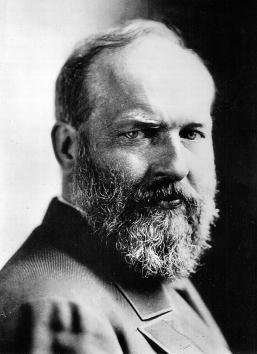 Even though James Garfield’s IQ was an impressive 152.3, he was unwillingly ousted from his presidential office. The past American President failed to leave a notable mark or bring about significant advancements during his tenure. The sole thing his high IQ demonstrated was his potential to govern a country, had he been given the opportunity to do so.
Even though James Garfield’s IQ was an impressive 152.3, he was unwillingly ousted from his presidential office. The past American President failed to leave a notable mark or bring about significant advancements during his tenure. The sole thing his high IQ demonstrated was his potential to govern a country, had he been given the opportunity to do so.
Garfield’s service to the United States was unfortunately cut short, lasting only 6 months and 15 days. Although he certainly has a place in our national history, one can’t help but speculate what could have happened had his intelligence been utilized more effectively.
John Tyler
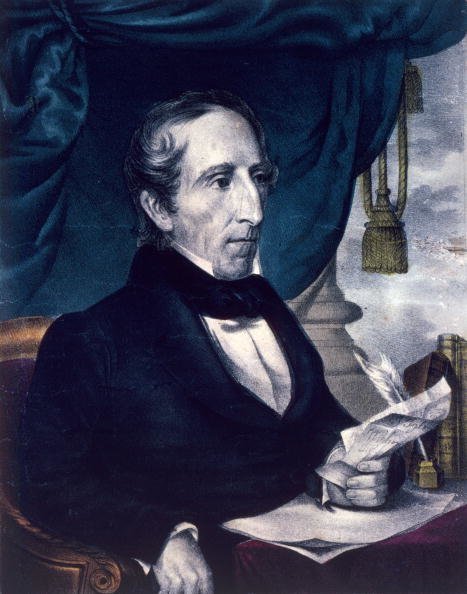 John Tyler, who served as the 10th U.S. President, possessed an impressive intelligence quotient of 148. In the wake of Harrison’s short-lived and fatal term, Tyler seized the presidency. He acquired the nickname “His Accidency” because at the time of Harrison’s death, there was no clear successor. Recognizing an opportunity, the audacious Tyler managed to find a judge who would administer the oath of office, thus declaring him president.
John Tyler, who served as the 10th U.S. President, possessed an impressive intelligence quotient of 148. In the wake of Harrison’s short-lived and fatal term, Tyler seized the presidency. He acquired the nickname “His Accidency” because at the time of Harrison’s death, there was no clear successor. Recognizing an opportunity, the audacious Tyler managed to find a judge who would administer the oath of office, thus declaring him president.
His expansion of Texas and connection of Florida to the Unionist movement set the stage for the looming civil discord. Ultimately, Tyler only demonstrated that he belonged to the group of “intelligent” individuals who harbored a fondness for warfare.
John Adams
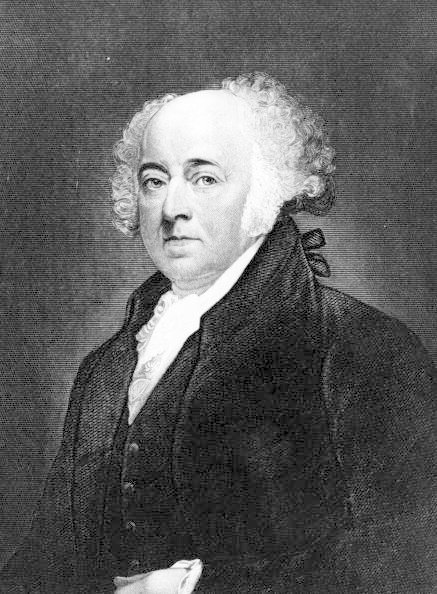 John Adams is primarily recognized for his extraordinary contribution as a political theorist. He held the prestigious position as the second president of the United States. A prominent figure among the founding fathers, Adams utilized his impressive IQ of 155 to craft the Constitution and made significant strides in American history by bringing an end to the Revolutionary War.
John Adams is primarily recognized for his extraordinary contribution as a political theorist. He held the prestigious position as the second president of the United States. A prominent figure among the founding fathers, Adams utilized his impressive IQ of 155 to craft the Constitution and made significant strides in American history by bringing an end to the Revolutionary War.
Despite possessing an impressive IQ, it was his son, John Quincy Adams, who demonstrated superior intellect and strength compared to his father. Meanwhile, John Adams Senior passed away at the remarkable age of 90.
Millard Fillmore
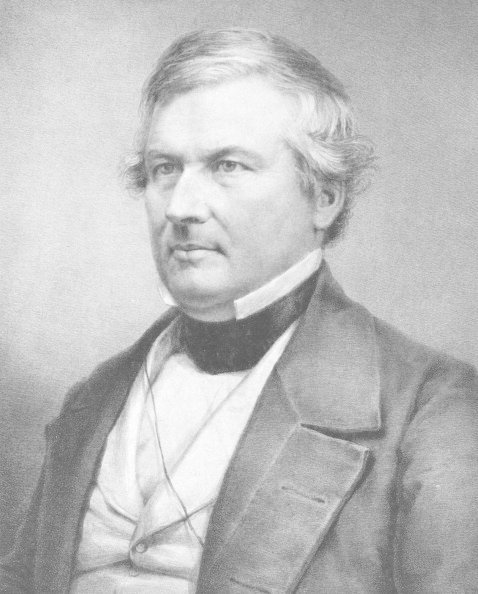 Possessing a high IQ of 149, Millard Filmore was nonetheless beholden to his carnal desires. He was so captivated by Abigail Powers that he asked for her hand in marriage and she agreed. However, his concentration seemed to be more towards romance rather than the country’s wellbeing. As a result, his presidency led the nation into the Civil War.
Possessing a high IQ of 149, Millard Filmore was nonetheless beholden to his carnal desires. He was so captivated by Abigail Powers that he asked for her hand in marriage and she agreed. However, his concentration seemed to be more towards romance rather than the country’s wellbeing. As a result, his presidency led the nation into the Civil War.
Similar to other high IQ presidents, Fillmore is widely recalled as one of the least successful American presidents. Is it necessary to delve deeper into this contentious topic?
Franklin D. Roosevelt
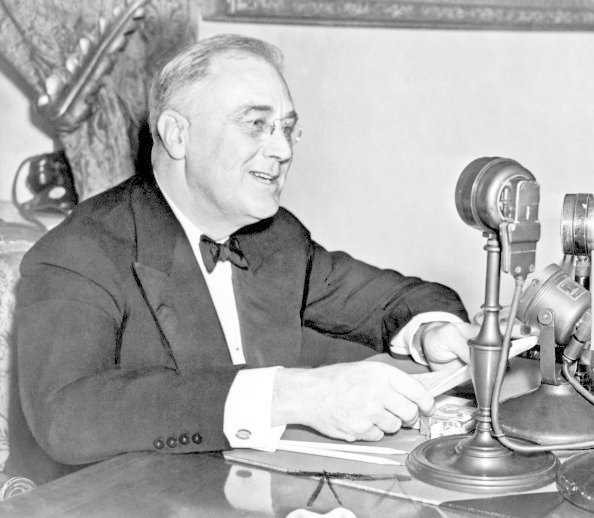 Undeniably, Franklin D. Roosevelt is held in high regard as one of America’s most iconic presidents. His remarkable four-term service to the nation, marked by extraordinary accomplishments such as the implementation of his “New Deal” policies, the establishment of numerous social programs, and his leadership during World War II, is something the country is profoundly grateful for.
Undeniably, Franklin D. Roosevelt is held in high regard as one of America’s most iconic presidents. His remarkable four-term service to the nation, marked by extraordinary accomplishments such as the implementation of his “New Deal” policies, the establishment of numerous social programs, and his leadership during World War II, is something the country is profoundly grateful for.
FDR, boasting an exceptional IQ of 150.5 and a myriad of remarkable accomplishments, undoubtedly left a noteworthy legacy. However, his life was not without controversy. Indeed, he was at the center of a significant scandal – an affair with his wife’s social secretary, Lucy Mercer, who proved too irresistible for him to reject.
Abraham Lincoln
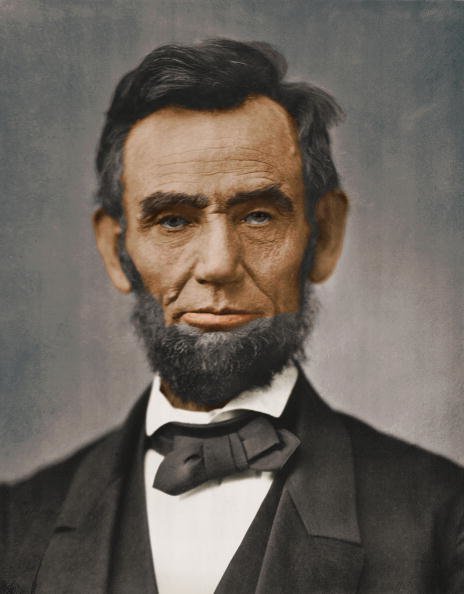 Abraham Lincoln, renowned for his intelligence, had an impressive IQ of 150. His fame matched his intellect, especially during an era when obtaining an education was a considerable challenge. Lincoln’s personal journey and ascendance in the political sphere were nothing short of extraordinary. He promulgated the Emancipation Proclamation in 1863, a significant step that resulted in many slaves gaining freedom.
Abraham Lincoln, renowned for his intelligence, had an impressive IQ of 150. His fame matched his intellect, especially during an era when obtaining an education was a considerable challenge. Lincoln’s personal journey and ascendance in the political sphere were nothing short of extraordinary. He promulgated the Emancipation Proclamation in 1863, a significant step that resulted in many slaves gaining freedom.
His formidable intelligence is evident in his Second Inaugural Address that is transcribed on the Lincoln Memorial in Washington DC. The address states, “with no ill-will towards anyone; with kindness for everyone; with a steadfast belief in what is right, as God grants us the knowledge to discern the right, let’s endeavour to complete the task we are bestowed with…”
Chester Arthur
 Chester Arthur, acknowledged as one of the most intellectually gifted US presidents with an impressive IQ of 152.3, employed his superior intelligence astutely during his legal and political career. Arthur succeeded to the presidential role after the tragic assassination of James Garfield.
Chester Arthur, acknowledged as one of the most intellectually gifted US presidents with an impressive IQ of 152.3, employed his superior intelligence astutely during his legal and political career. Arthur succeeded to the presidential role after the tragic assassination of James Garfield.
Regrettably, Arthur’s presidency turned out less motivating than the people had anticipated. It appears that his renown stems more from his achievements before his presidency rather than his tenure in the office itself.
Theodore Roosevelt
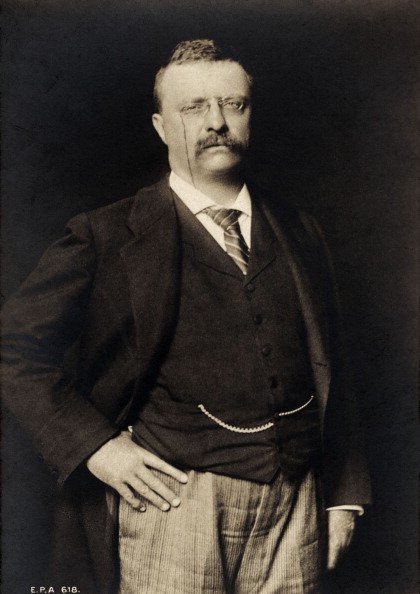 When President William McKinley was assassinated, Theodore Roosevelt, at the age of 42, took over as the youngest president in the history of the United States. His energetic approach and powerful policies marked him as a significant presence to contend with.
When President William McKinley was assassinated, Theodore Roosevelt, at the age of 42, took over as the youngest president in the history of the United States. His energetic approach and powerful policies marked him as a significant presence to contend with.
Given his impressive IQ of 153, do you think you have what it takes to test his cognitive abilities? Here’s a fascinating fact: Theodore Roosevelt, whilst at Harvard University, discovered his love for boxing. He cherished the sport to the extent that he carried on with it during his time in the White House, proving that he balanced both intellect and physical fitness. Isn’t that remarkable?
Woodrow Wilson
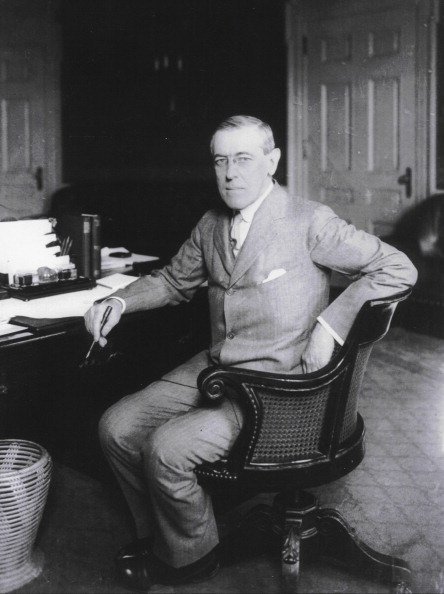 Get to know Woodrow Wilson, a pivotal character who guided the US during the most significant war ever seen by the world. Wilson, boasting an impressive IQ of 155.2, fulfilled his duties from 1913 to 1921.
Get to know Woodrow Wilson, a pivotal character who guided the US during the most significant war ever seen by the world. Wilson, boasting an impressive IQ of 155.2, fulfilled his duties from 1913 to 1921.
He championed the cause of global peace and continues to be regarded as one of the most notable presidents in American history. His contributions, such as the “Fourteen Points” peace plan and his pivotal role in the Treaty of Versailles negotiations, have earned their places in historical accounts. Without a doubt, his exceptional intelligence was a key factor in his progressive views, adeptness, and practical strategies.
Jimmy Carter Jr.
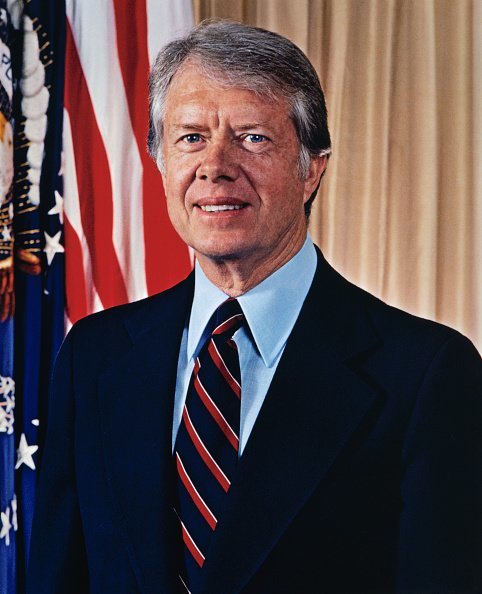 Making his place among the most intelligent US presidents is the Nobel Peace laureate, James Earl Carter, Jr. With an impressive IQ of 156.8, his ambitious dreams of transforming the nation into a competent and compassionate society were praiseworthy, albeit they were perhaps a bit impractical for his era.
Making his place among the most intelligent US presidents is the Nobel Peace laureate, James Earl Carter, Jr. With an impressive IQ of 156.8, his ambitious dreams of transforming the nation into a competent and compassionate society were praiseworthy, albeit they were perhaps a bit impractical for his era.
He was a staunch advocate for human rights, and we commend him for his efforts. Yet, his extraordinary intellect sometimes bordered on eccentricity. After a conference in Georgia in 1976, he professed to spotting UFOs. What’s your take on this – could his claim be valid?
James Madison
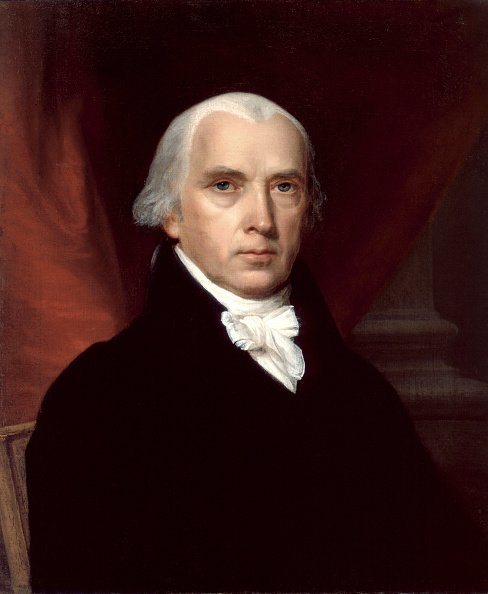 James Madison’s spot on this list is undeniable. Boasting an impressive IQ of 160, Madison is revered as the Constitution’s Architect. In addition to this, he served under Jefferson as the secretary of state and significantly influenced the history of the United States through his notable contributions.
James Madison’s spot on this list is undeniable. Boasting an impressive IQ of 160, Madison is revered as the Constitution’s Architect. In addition to this, he served under Jefferson as the secretary of state and significantly influenced the history of the United States through his notable contributions.
Madison, in contrast to those who followed him, had the humility to acknowledge that the Constitution was not merely “the product of a single intellect,” but rather “the collective effort of numerous minds and countless hands.” We extend our deepest gratitude to you, gentleman.
Thomas Jefferson

Thomas Jefferson, who penned the Declaration of Independence, was one of the American presidents with the highest intelligence quotient, boasting a score of 160. He had a profound appreciation for French food which grew after a diplomatic visit to France. So much so, he instructed his young 19-year-old cook to master the nuances of French culinary art.
Jefferson was known for throwing extravagant feasts, often serving French cuisine. Besides his culinary preferences, his high intelligence enabled him to make impactful contributions during his presidential tenure, deviating from the norm.
John Quincy Adams
 John Quincy Adams emerged as the brightest President in US history, boasting an impressive IQ of 175. Adams had the necessary tools to effect major changes. His progressive ideas about slavery and free speech should always be commemorated.
John Quincy Adams emerged as the brightest President in US history, boasting an impressive IQ of 175. Adams had the necessary tools to effect major changes. His progressive ideas about slavery and free speech should always be commemorated.
Even the highly respected Adams failed to reach his full potential. Regardless of his aptitude in seven languages and his remarkable intellectual abilities, he prioritized daily skinny-dipping sessions, instead of focusing on the requirements of the country.
Barack Obama

Although we don’t know Obama’s exact IQ, his two-term presidency was marked by significant transformations. As the first African American elected to the Oval Office, Obama’s assertiveness and sensitivity led to the elimination of ruthless terrorists, including Osama bin Laden. He was unwavering in his pursuit of global peace and the protection of his country.
Obama was seen as a refreshing change for the public after a succession of previous presidents. His authenticity and middle-class roots resonated with many Americans, solidifying his role as an influential leader, irrespective of his intelligence quotient.
